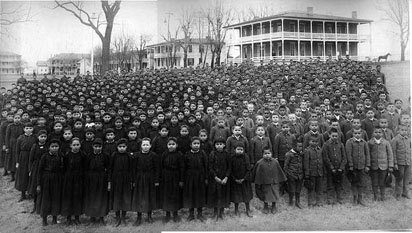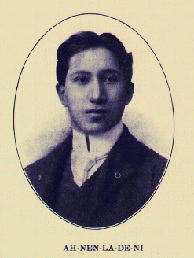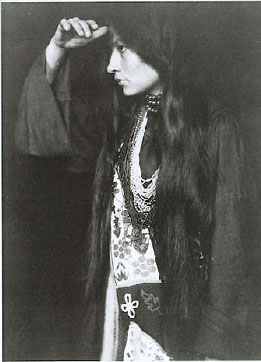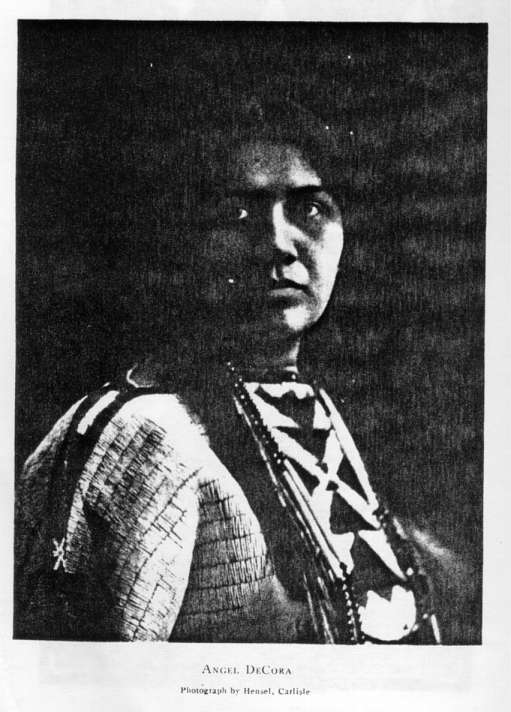|

Boarding School 
Student body assembled on the Carlisle Indian
School Grounds, 1892.
For Native American children the boarding school
experience necessitated their transformation from unincorporated
members of Native America to participants in the culture of
incorporation. For many, boarding school represented the first
contact Native American children had with the outside white world.
When they arrived at boarding school they were greeted by white
teachers and missionaries who hoped to "civilize" them. Famous
boarding schools like the Carlisle School (pictured above) and the
Hampton Institute engaged in a brutal program of forced
incorporation. The children, who were many times dragged from their
homes without the knowledge of their parents, were denied the right
to speak in their native tongue, call each other by native names,
and were forced to leave the last vestiges of their traditional
lifestyle, including their long black hair, at the gates of the
school.
The Boarding School
experience was, according to one of its harshest and most vocal
critics, Zitkala Sa, a"miserable state of cultural dislocation,"
that created problems long after the children returned home. As the
stories below reveal the boarding school experience not only
alienated the children from their families but also from their
culture as many of the children were removed to early to remember
all but traces of their traditional life styles.
|

In this
autobiographical tale the author shares his experience as a
young man in an American system of cultural imperialism so
pervasive that the name applied to Ah-nen-la-de-ni's people,
the "Mohawk," had an English, not a Native American
origination. Ah-nen-la-de-ni's story poignantly demonstrates
the emotional and physical burdens placed on young Native
American children at these institutions of incorporation.
Using the term "inmates" to describe the students,
Ah-nen-la-de-ni reveals the physical and psychological fear
felt by the young students and the state of cultural purgatory
that this experience left its victims in as they were at once
alienated from their own culture and denied access to
the culture of the mainstream.
|
|
The School Days of an Indian Girl
by
Zitkala Sa [Gertrude Bonnin]
 These
stories written by Zitkala Sa reveal the Boarding School
experience from the perspective of student and teacher. By
publishing these stories in the Atlantic Monthly, Sa succeeded in blowing the whistle on the corruption and degradation of
the boarding school system. |
|
Angel
Decora--An Autobiography

Angel De Cora, one of the first Native American
illustrators, provides a rare first person account of what was
essentially her own kidnapping. Taken from her family without
their knowledge she was shipped off the the Hampton Institute.
DeCora would not see her family for three years. Her own
designs are uses as illustrations for this text and add to her
story.
NEXT: ON THE RESERVATION |
Links
Includes excellent images, biographies of students, and a valuable links page.
Remembering our Indian
School Days The Heard Exhibition
on The Boarding School Experience
|

|


